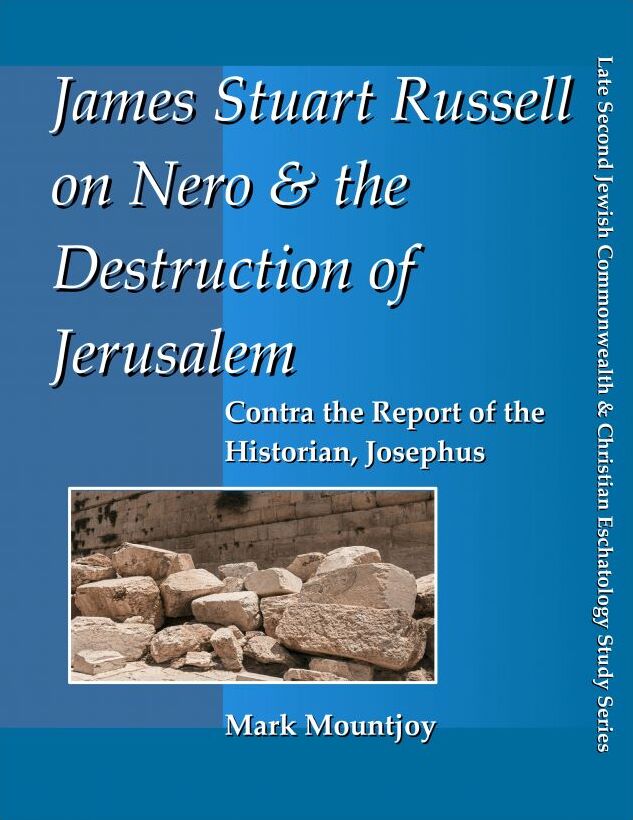[Click on the image to review]
James Stuart Russell’s The Parousia has been a seminal work for many exploring Full Preterist interpretations. However, Russell’s analysis in this 19th century thesis displays a critical blind spot when it comes to the distinctly Jewish sacerdotal context motivating the prophecies in 2 Thessalonians 2 and Revelation 13.
Description: In forcing connections between the pagan Roman emperor Nero and these scriptures, Russell overlooks the inherently Jewish religious nature of the foretold “man of sin” figure and the sacerdotal crimes centered around opposition to God and the desecration of the Second Temple:
• Russell’s fatal flaw: Forcing the square peg of Nero into the round hole of biblical prophecies concerning sacerdotal crimes against the holy sanctuary in first century Jerusalem.
• Overlooking the inherently Jewish, religious, and Second Temple-based nature of transgressions like opposing God, blaspheming the sacred precinct, and instigating deceptive “signs and wonders” to mislead the faithful into disastrous revolt.
• Recklessly transposing Nero’s domestic crimes in Rome onto an entirely different continent and sacred context, despite no evidence the emperor aimed to perpetrate distinctly sacerdotal offenses in the Holy Land.
• Ignoring eyewitness accounts from Josephus that Jewish false prophets and militant factions - not Nero - fomented apocalyptic fervor leading to their upheaval, occupation and abuse of the Second Temple itself.
• Contriving speculative inferences about Nero embodying the “man of sin” while disregarding these prophecies' original urgency rooted in the Judaic-Christian context and sacred traditions.
In essence, this critique summarizes how Russell fundamentally errs by forcing the pagan Roman emperor into prophecies firmly rooted in the Jewish religious context, focused on perceived sacerdotal crimes desecrating Judaism’s holiest site - transgressions the historical record shows Nero neither aimed for nor instigated. The bullet points expose Russell’s deep disconnection from the original Judeo-Christian realities motivating these prophecies.

